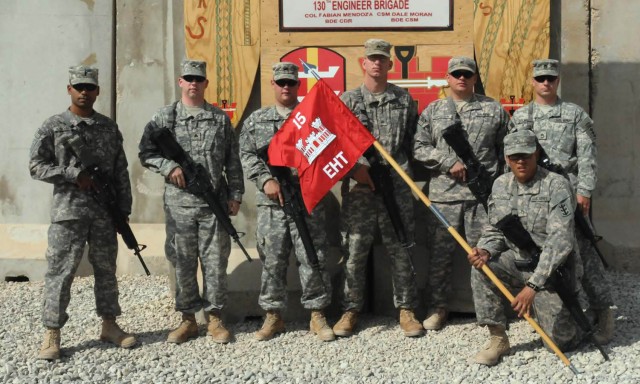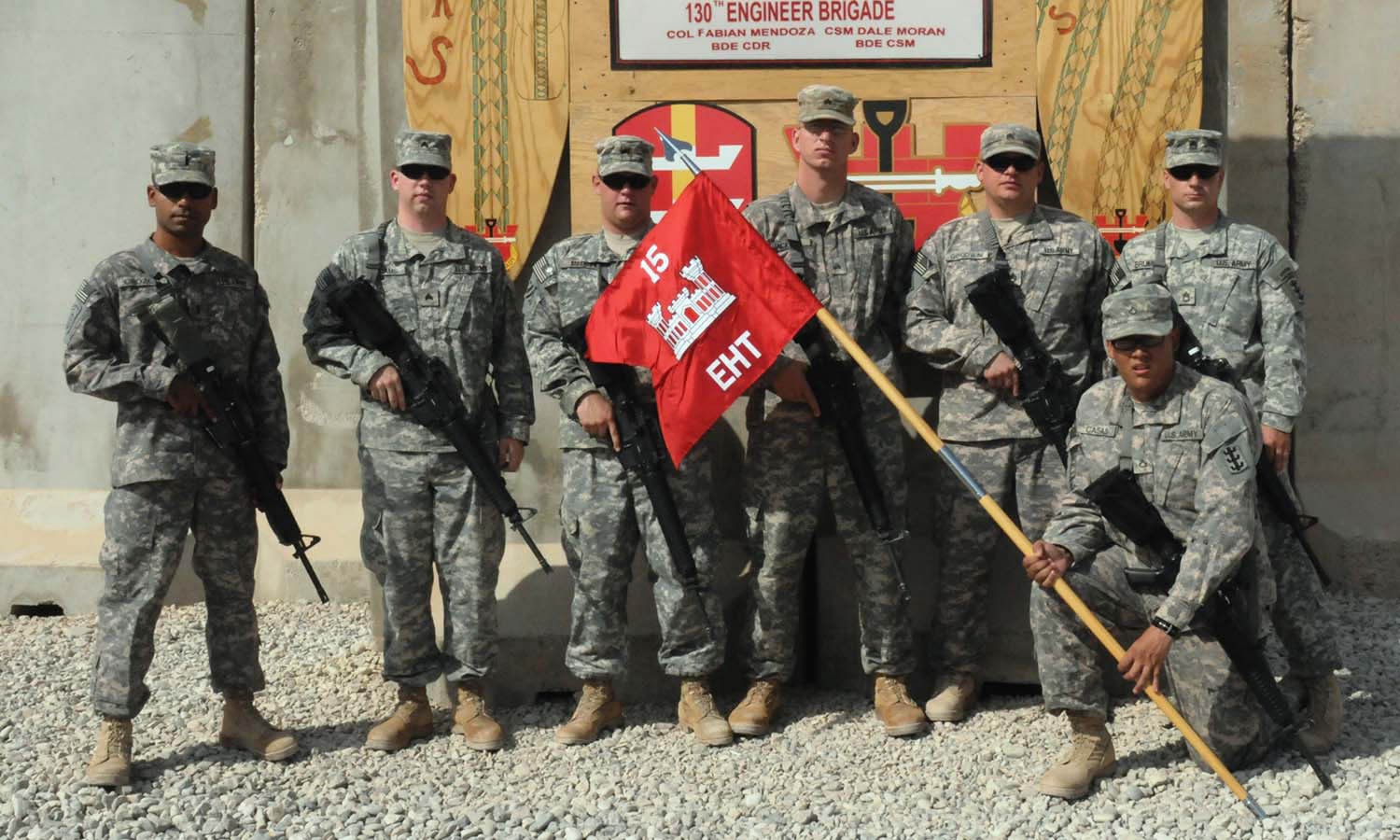
CONTINGENCY OPERATING STATION MAREZ, MOSUL, Iraq - The 130th Engineer Brigade\'s highly specialized 15th Explosive Hazards Team (EHT) recently arrived in Iraq to support the brigade's reconstruction mission in Ninewa province.
The unit's presence will enhance the 130th's capabilities to train Iraqi Security Forces in counter-improvised explosive device (C-IED) tactics and evidence collection procedures.
EHTs are a new concept in military operations. Created to support Explosives Ordnance Disposal units to combat explosives hazard, each team member completes several months of intensive training.
From mine detection and area clearance to explosives tracking and hazards planning, EHT training is designed to give each member the skills necessary to better protect U.S. and Iraqi forces from explosive threats in theater.
"The training we went through as a unit certified us to be able to instruct other units in IED defeat, area clearance, and mine detection operations," said Sgt. James T. Williams, a technical intelligence analyst with the 15th EHT.
Four EHTs are within the U.S. Army: one at Fort Bragg, N.C.; Fort Hood, Texas; Fort Lewis, Wash.; and the 15th EHT, from Schofield Barracks, Hawaii.
"The 15th EHT was not only the first team to complete the certification process" said 1st Lt. Manuel Orozco, 15th EHT detachment commander, "but they are also the first operational EHT to deploy in support of Operation Iraqi Freedom."
"I credit my team members for the outstanding job they did to get us where we are," said Orozco.
According to Orozco, his seven-member team will provide explosives tracking, mitigation and assured mobility for the 130th Eng. Bde., and they will act as a military training team for local Iraqi Army soldiers.
IED awareness, site exploitation and preservation training for the ISF is especially crucial since security of the country transitioned from the U.S. to the Iraqis, June 30.
While the 15th EHT arrived in country certified to train other units in explosives hazards, the ever-changing operational demands in Iraq provide the unit the opportunity to also teach the Iraqis evidence collection procedures as part of the C-IED training.
"A critical part of our mission is training the Iraqi Security Forces in everything they need to know to replace U.S. forces as far as conducting counter-IED operations. We 'train the trainers' so the Iraqis can take what they learn from us back to their own units and teach them how to effectively counter the IED threat," Orozco said.
The 15th EHT is currently undergoing crime scene evidence collection certification. Before the team can train the ISF in these procedures, they must complete several hours of sensitive site exploitation training.
Law enforcement officials with the 25th Infantry Division, which is responsible for operations in MND-N, will certify the 15th EHT in these procedures.
ISF evidence collection training will be a major part of the 15th EHT's mission. Orozco said using evidence collection procedures at crime scenes will assist the Iraqis in targeting the insurgency, and ultimately, governing themselves.
Knowing how to effectively target explosives hazards and finding insurgents responsible for making, emplacing and financing IED operations gives the Iraqi government more control.
The 15th EHT's efforts will help create a safer, more stable environment, not only for U.S. forces aiding in Iraq's reconstruction, but for Iraqi government officials and citizens going about their daily lives in an uncertain time.

Social Sharing